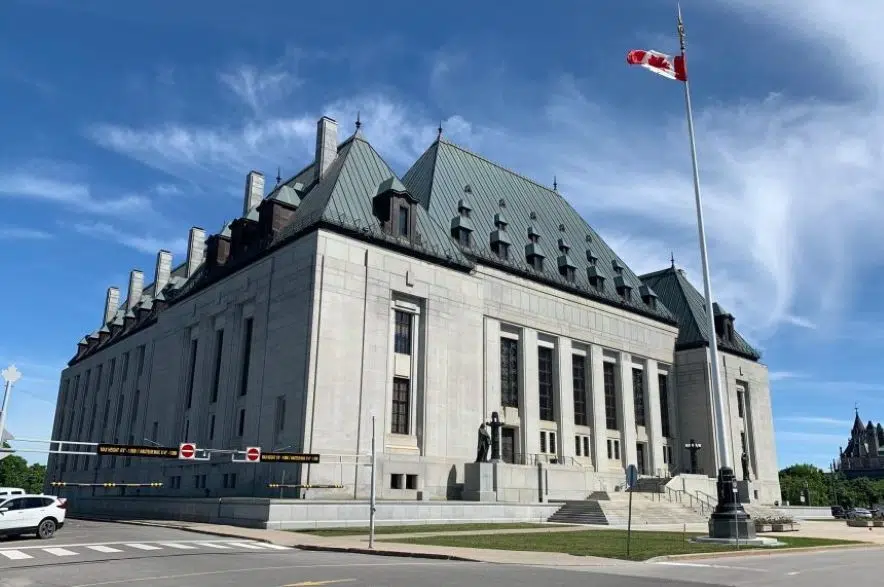After the Crown appeal was dismissed by Canada’s highest court this week, a Saskatoon lawyer is looking ahead toward a new trial that will be coming over Métis hunting rights.
On Thursday, the Supreme Court of Canada handed down a ruling dismissing an appeal from the Crown over the decision from the Saskatchewan Court of Appeal from May last year.
That means the appeals court decision stands, which allowed the appeals of conviction for Warren Boyer and Oliver Poitras for unlawfully hunting or fishing, and ordered a new trial.
“The Supreme Court of Canada once talked about Indigenous people feeling the exercise of their aboriginal right was an unlawful activity,” said Kathy Hodgson-Smith, one of the pair’s lawyers in Saskatoon.
“And I think it’s really important that we clarify this important right because it is so culturally based (and) it is so identity based.”
Boyer, Poitras and a third man who ended up being acquitted were found hunting or fishing outside of what had previously been determined as historical Métis lands – Boyer in 2014 and Poitras 2012.
Their cases were joined because they were all part of the same modern and historical Métis communities and their arguments and defence were similar.
The argument was, and continues to be, that the men, as Métis peoples, have an existing right to hunt and fish for food under Section 35 of the Constitution Act, “Recognition of existing aboriginal and treaty rights.”
There are some areas that have previously been recognized by the courts as historic Métis lands, some in southern Saskatchewan and much of the north of the province as well. But in this case, the defendants say that Métis people were historically highly mobile and so their historic lands encompass much larger tracts of land and could possibly extend to the entire province.
The Crown disagreed, saying Métis hunting rights need to be dealt with on a site-specific basis with a regional approach, and a Provincial Court judge agreed with the Crown. A Court of King’s Bench justice refused to hear the men’s appeal, prompting them to go to the Court of Appeal.
The panel of three justices at that court said the Provincial Court ruling prevented the consideration of evidence and denied the defendants the right to make a full answer and defence.
Now, after the Supreme Court dismissal, the case will go back to the Court of King’s Bench for a new trial.
“It’s disappointing that we’re going back to trial because it’s a huge undertaking,” said Hodgson-Smith.
She explained they’ll be able to introduce all the evidence from the Laviolette case, which was the first decision in Saskatchewan to formally recognize the existence of a historic Métis community in the northwest before Saskatchewan and Alberta were formed.
But it has been such a long process and such a long time since the Laviolette decision many of the witnesses and experts have aged out or died since then.
“It’s going to be a big undertaking to try to get a proper trial moving forward but I’m very confident about the framework that the Court of Appeal has set out, and now it’s just a matter of putting the evidence into that framework,” said Hodgson-Smith.
Hodgson-Smith plans to bring an application to join these two cases with several others she’s involved in and aware of where Métis people from the same communities have been ticketed for unlawful hunting or fishing.
“There is still an evidentiary burden on a claimant to prove that historic territory, but at least at this point we can do a broad claim so that, perhaps, we can clarify the spaces in which Métis people can exercise their Section 35 rights in this province, and clarify as well, for the province, the jurisdiction question for the Métis hunters,” she explained.
Hodgson-Smith said there’s been a lack of clarity for both sides in these situations.
The decision in the new trial could have wide-ranging effects for people in the province, particularly if the defendants are successful. Hodgson-Smith said there needs to be clarity on this issue to move forward with reconciliation.











